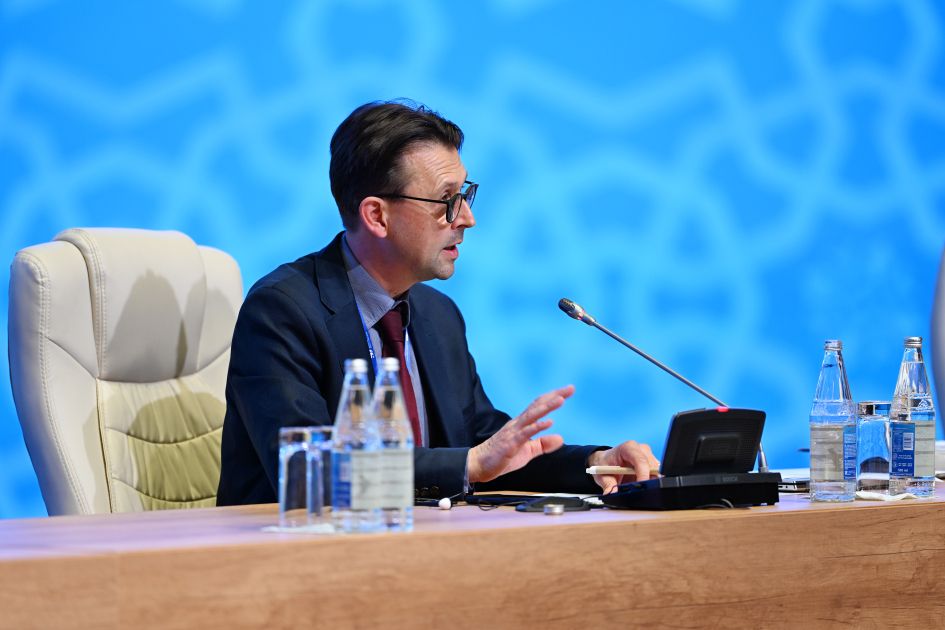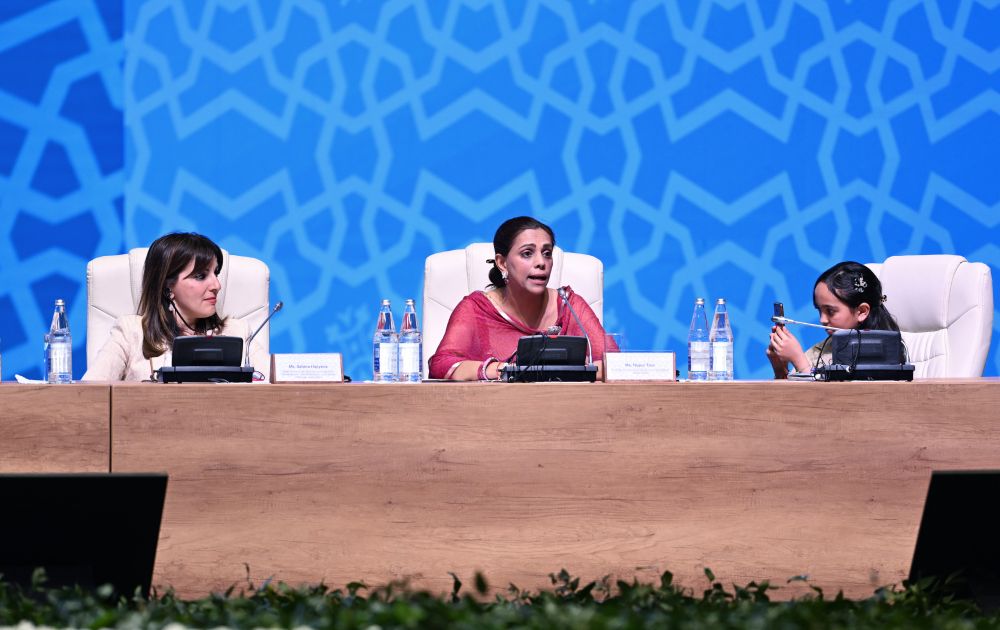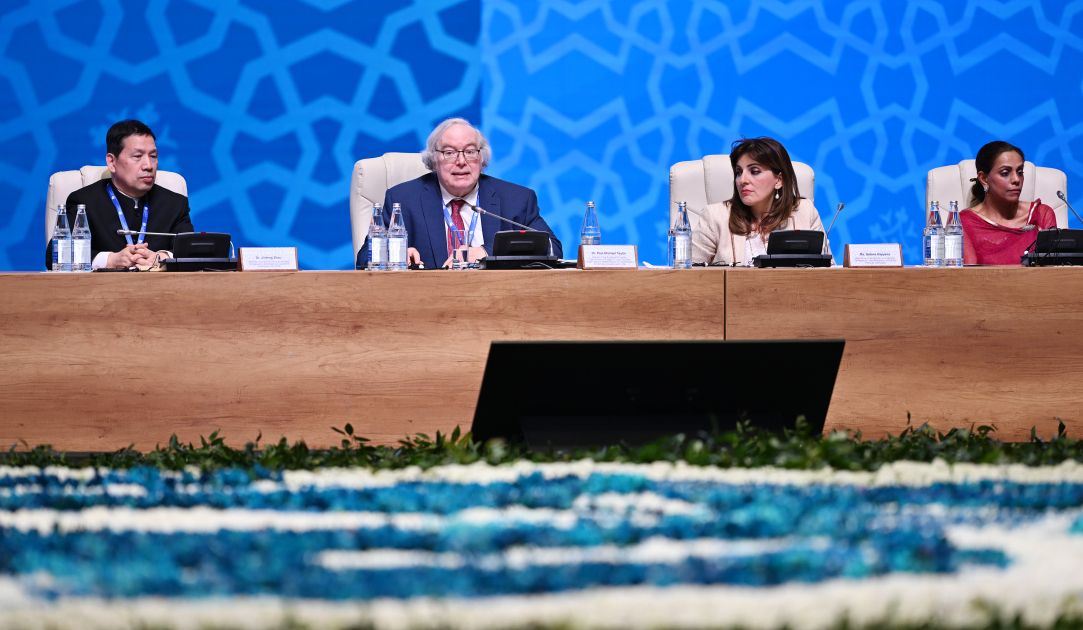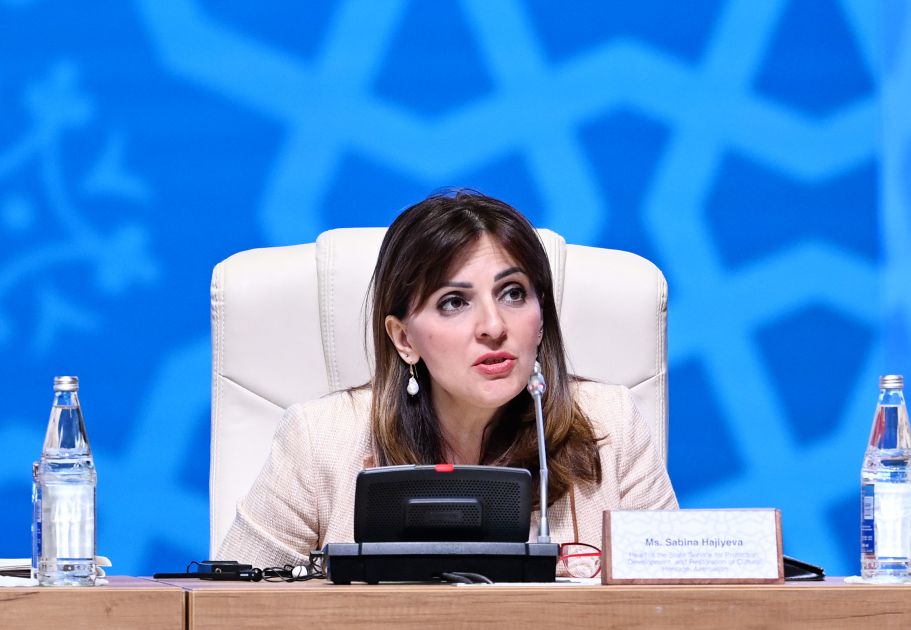6th World Forum draws attention to cultural heritage in face of climate change [PHOTOS]
![6th World Forum draws attention to cultural heritage in face of climate change [PHOTOS]](https://www.azernews.az/media/2024/05/03/erjfrejfrefre.jpg)
The 4th plenary session themed "Safeguarding our past and future: Cultural heritage in the face of Climate Change" has been organized as part of the 6th World Forum on Intercultural Dialogue, Azernews reports.
Moderated by Secretary-General and Chief Executive of the UK National Commission for UNESCO James Bridge, the plenary session highlighted the impact of climate change on cultural heritage monuments, the need for preservation efforts, and challenges in ensuring the longevity of historical sites.
The session emphasized the importance of addressing the threats posed by climate change to both tangible and intangible cultural heritage, and the necessity of implementing measures to safeguard these valuable assets for future generations.
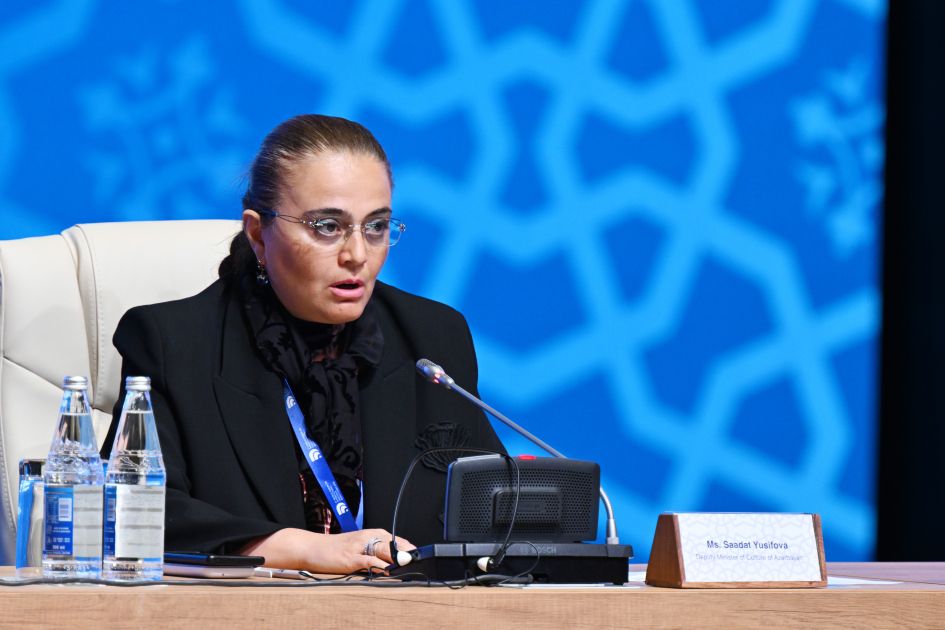
Speaking at the event, Azerbaijan Deputy Culture Minister Saadat Yusifova pointed out that Azerbaijan's cultural heritage monuments are not directly insured against the effects of climate change.
"During the relevant excavations conducted in the memorial complex created in Guba to perpetuate the memory of those killed during the Armenian genocide in March 1918, it was observed that soil erosion increased significantly. Petroglyphs in Gobustan have undergone certain negative processes due to the influence of climate change. The decrease in the volume of rains has complicated the current situation of other historical objects such as Damjili Cave. Although architectural objects have passed the test of centuries, they are affected by nature. More biological and chemical factors are revealed here. The work to be done in the direction of their preservation and delivery to future generations is becoming difficult. At least six objects on the UNESCO list which are in danger are located on Azerbaijani territory," Saadat Yusifova said.
She added that climate change negatively affects the national parks and sanctuaries. Research is being conducted in this regard and some proposals were prepared based on the analysis.
"We have drawn up a Road Map regarding the protection of nature and national cultural heritage objects. This has opened up new opportunities for the application of unified strategies. Many countries are facing the same challenges. Therefore, there is a need to develop effective adaptation strategies at both national and international levels. Azerbaijan makes consistent contributions to the fight against climate change. As a country that will host COP29, Azerbaijan is ready to support any strategies that will be put forward in this direction," the Deputy Culture Minister said.
"Unfortunately, along with climate changes, wars also have a negative impact on nature and cultural heritage. The Azerbaijani monuments, which were under the Armenian occupation for almost 30 years, were destroyed and cultural genocide was committed there. Approximately 35 cultural heritage sites of special importance located in Garabagh and Eastern Zangazur have been significantly negatively affected. Among them, we would like to mention the acts of vandalism. Tens of thousands of historical monuments were destroyed, access to more than a hundred monuments was blocked. This is explained by the mining of the roads leading to those areas. The protection of these monuments is an integral part of the Great Return Program," she added.
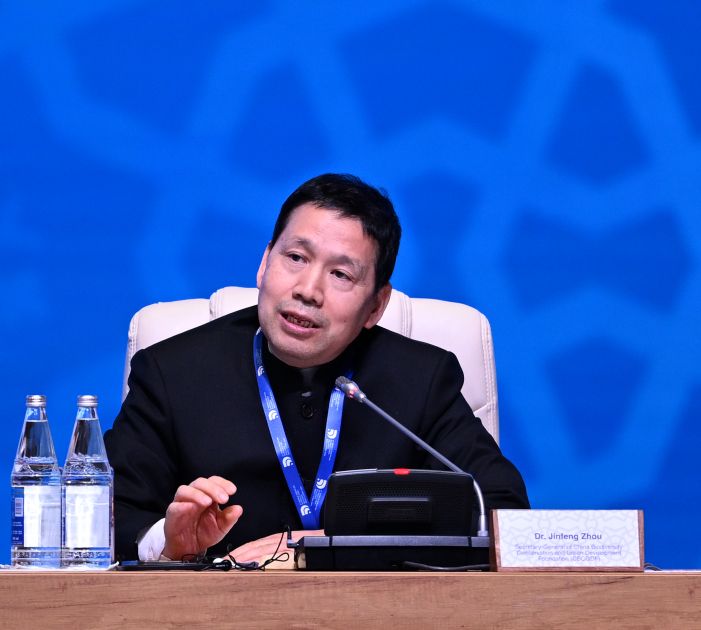
The Secretary-General of China Biodiversity Conservation and Green Development Foundation (CBCGDF) Jinfeng Zhou noted the impact of industrialization on the environment and the decline of biodiversity, said:
"Until now, we have focused only on certain breeds and species of the animal kingdom. Many species have been overlooked. We have completely lost some breeds. In this case, interaction is needed. If people and societies are well informed about this problem, if they come together, if they understand the issues related to the future, we can prevent negative processes in the field of climate and biodiversity."
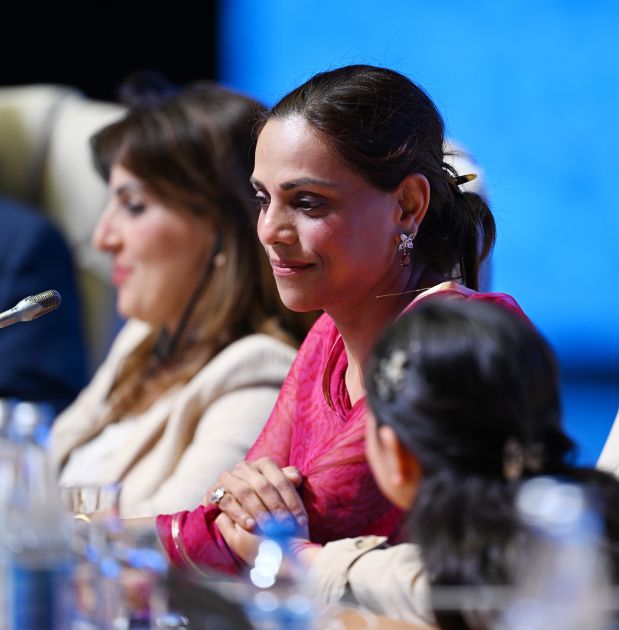
Founder and CEO of the Frison Horta Foundation Nupur Tron emphasized the importance of raising the growing generation in the spirit of love for the environment and getting acquainted with the problems of climate change early.
"If we do not raise our voice to the problems of climate change, nature will face a more difficult situation. We must take measures to strengthen the harmony of young people with nature."
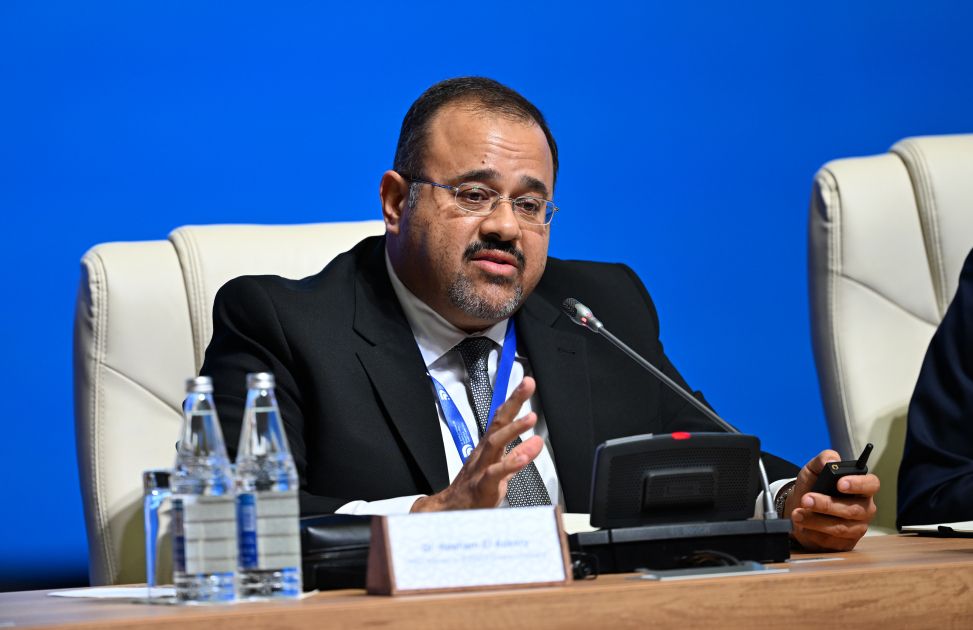
Advisor to the ICESCO Secretary General Hesham El Askary said that according to the conducted studies, there are three different warning scenarios related to climate changes.
"The latest studies show that climate change is having very negative effects on cultural heritage monuments. Intangible and tangible cultural heritage monuments are under threat. Research conducted over the past five years has enabled the development of new models. ICESCO focuses on protecting cultural heritage. It's about our past and it's about our future," Hisham Al-Askari said.
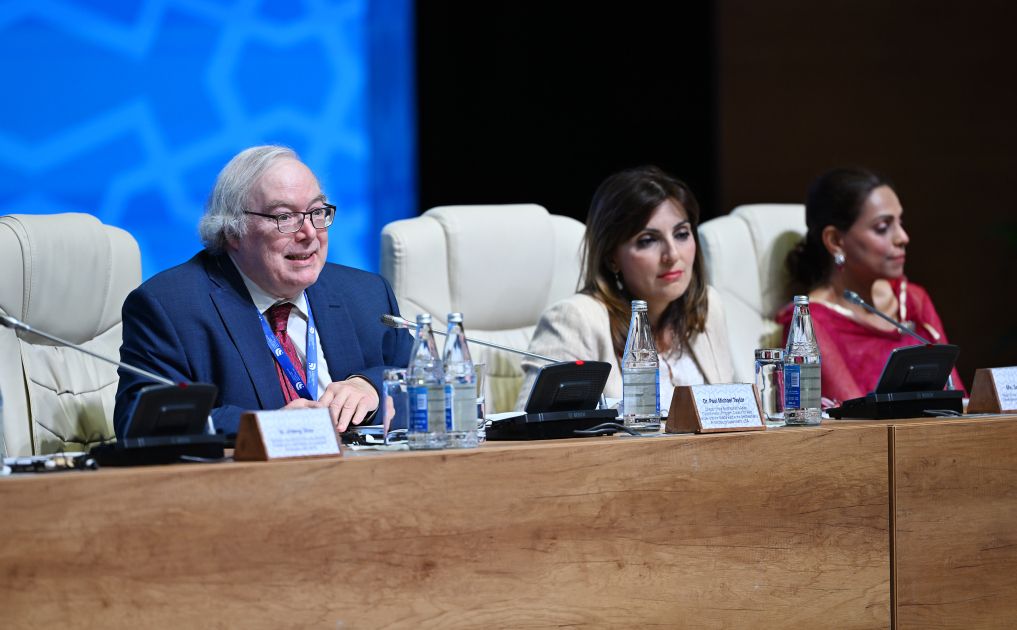
In his speech, research anthropologist at Smithsonian's National Museum of Natural History, curator of Asian, European, and Middle Eastern Ethnology and head of that museum's Asian Cultural History Program Paul Michael Taylor underscored the emergency preparedness and response measures. He stressed that the digital copies of exhibits can play a key role in the preservation of cultural heritage.
Paul Michael Taylor outlined that cooperated with the Azerbaijan National Academy of Sciences in the field of cultural heritage protection and even prepared a joint book.
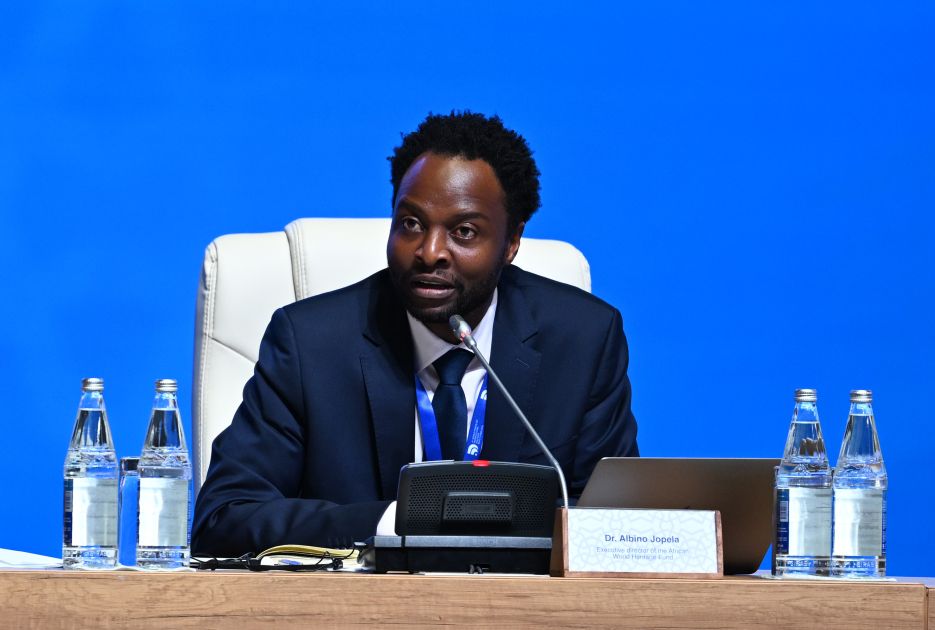
Head of programs at the African World Heritage Fund (AWHF) Albino Jopela said that there are places in Africa which are in danger.
"About six percent of them faced danger. Seven percent of listed African monuments are directly affected by climate change. There is a need for different strategies related to the management of cultural heritage objects," said the executive director, thanking the government of Azerbaijan for the invitation to the event, as well as financial support to the African World Heritage Fund," Albino Jopela said.
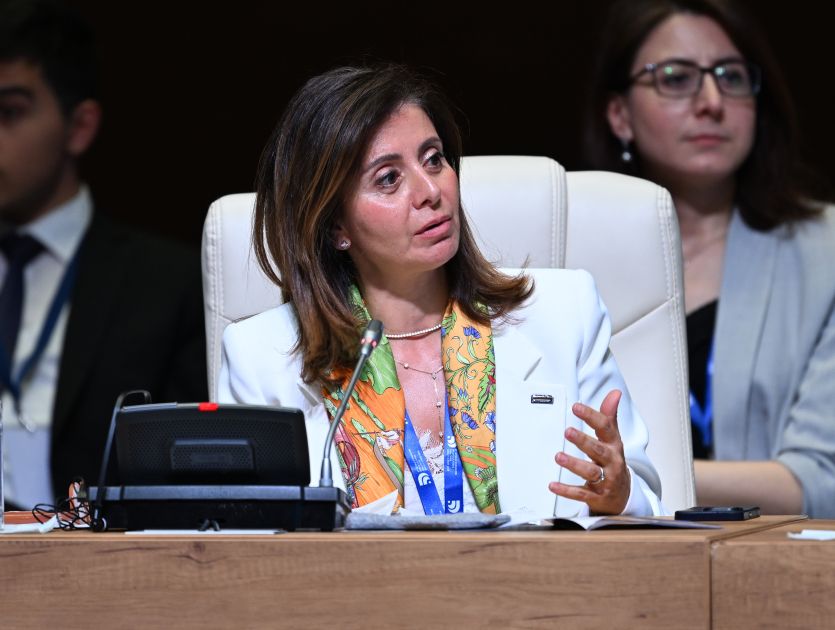
Head of the State Service for Protection, Development, and Restoration Sabina Hajiyeva drew attention to the fact that Azerbaijan is home to 7,000 archaeological monuments.
"Despite the government's concern for monuments, there are still some problems related to their preservation. "The biggest problem is the monuments in our lands that have been occupied for many years. Since most of the areas are mined, we cannot approach them. We cannot enter places that are very valuable, especially from an archaeological point of view," Sabina Hajiyeva said.
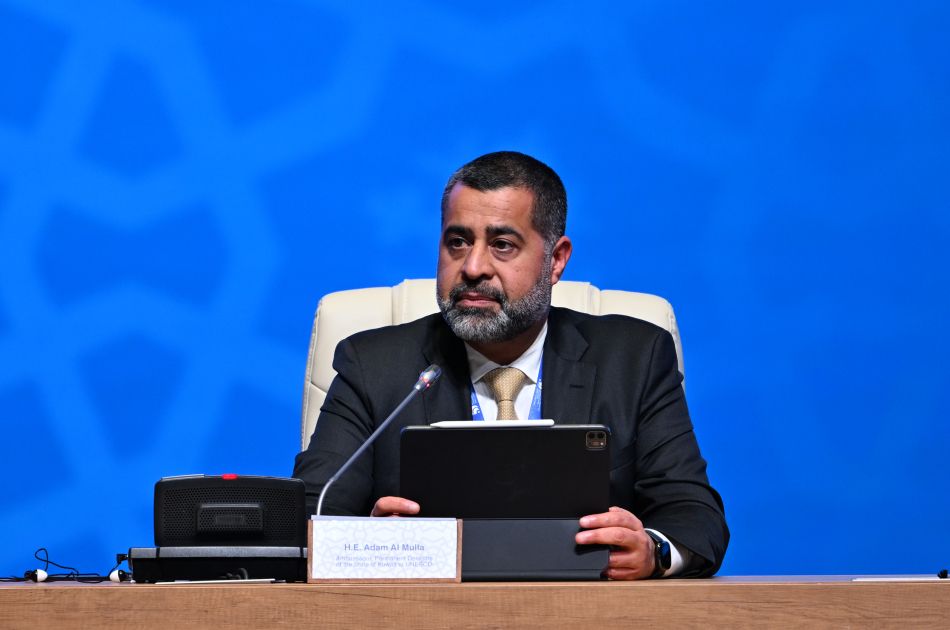
Kuwaiti Permanent Representative to the UNESCO Ambassador Dr. Adam Al-Mulla stated that the process of climate change is accelerating, even increasing its speed three times in different places. He stressed that the World Forum on Intercultural Dialogue unites everyone in the fight against the threat of climate change.
The 6th edition of the World Forum on Intercultural Dialogue is underway in Baku under the theme "Dialogue for Peace and Global Security: Cooperation and Interconnectivity" .
This forum, part of the Baku Process initiated by President of Azerbaijan Ilham Aliyev in 2008, is organized in partnership with prominent international entities such as the United Nations Alliance of Civilizations (UNAOC), UNESCO, UN Tourism, and the Islamic World Educational, Scientific, and Cultural Organization (ICESCO).
The forum aims to explore the critical intersections between dialogue facilitation, cooperative frameworks, leadership efficacy, and the complex dynamics of interconnectedness, all in the service of advancing global peace and security imperatives.
Over three days, a series of plenary sessions and panel discussions bring together a diverse array of stakeholders, including government officials, representatives from international organizations, eminent cultural figures, journalists, civil society actors, and intellectuals from across the globe, to deliberate upon pressing global challenges.
----
Laman Ismayilova is AzerNews’ staff journalist, follow her on Twitter: @lmntypewriterrr
Follow us on Twitter @AzerNewsAz
Here we are to serve you with news right now. It does not cost much, but worth your attention.
Choose to support open, independent, quality journalism and subscribe on a monthly basis.
By subscribing to our online newspaper, you can have full digital access to all news, analysis, and much more.
You can also follow AzerNEWS on Twitter @AzerNewsAz or Facebook @AzerNewsNewspaper
Thank you!




